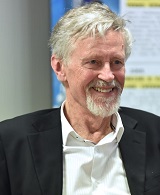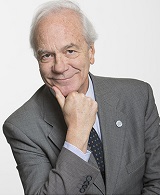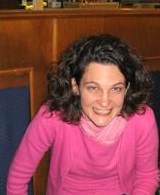Will our Cities Morph into a CityVerse?
IEEE Metaverse Webinar Series: Will our Cities Morph into a CityVerse?
Virtual Event on 7 November 2023 at 11 AM ET
The digital transformation of cities, led by the need to optimize resources and offer better services to citizens, is resulting in a habitual use of digital resources and digital space. Citizens, on their side, are getting more and more used to operating in a digital space for their shopping, inquiries, social interactions, and more.
These two trends, one pursued top-down by city municipalities, and the other bottom-up by citizens, are converging towards the transformation of our cities' living space towards what we may call a CityVerse.
Featured Speakers:
- Derrick de Kerckhove, Scientific Director at Media 2000
- Roberto Saracco, Industry Advisory Board Co Chair, IEEE Future Directions Committee
- Daniela Tulone, Senior Expert CINI, Italian University Consortium for Computer Science
The webinar will address these two trends, bringing concrete examples in the first part. In the second part, it will address the issue of how life could be in this new environment, and how people’s social relations might adapt and contribute to shape it. The third and closing part will address the need to steer this evolution through standards that are also foster an increasing sustainability of the cityscape.
Featured Speakers:
 Derrick de Kerckhove, Scientific Director at Media 2000
Derrick de Kerckhove, Scientific Director at Media 2000
Derrick de Kerckhove, Scientific Director at Media 2000, is former Director of the McLuhan Program in Culture & Technology at the University of Toronto, where he is professor emeritus at the Department of French. He subsequently joined the Faculty of Sociology of the University Federico II in Naples.
Derrick is presently, scientific director of the Rome-based monthly Media Duemila, he is the author of a dozen books edited in over ten languages. He is also Research Director at the Interdisciplinary Internet Institute (IN3) at l’Universitat Oberta de Catalunya in Barcelona.
 Roberto Saracco, Industry Advisory Board Co Chair, IEEE Future Directions Committee
Roberto Saracco, Industry Advisory Board Co Chair, IEEE Future Directions Committee
Roberto Saracco fell in love with technology and its implications long time ago. His background is in math and computer science. Until April 2017 he led the EIT Digital Italian Node and then was head of the Industrial Doctoral School of EIT Digital up to September 2018. Previously, up to December 2011 he was the Director of the Telecom Italia Future Centre in Venice, looking at the interplay of technology evolution, economics and society. At the turn of the century he led a World Bank-Infodev project to stimulate entrepreneurship in Latin America.
He is a senior member of IEEE where he leads the Industry Advisory Board within the Future Directions Committee and co-chairs the Digital Reality fostering Digital Transformation Initiative. He teaches a Master course on Technology Forecasting and Market impact at the University of Trento and he is a COMSOC Distinguished Lecturer.
He has published over 200 papers in journals and magazines and 14 books. He writes a daily blog, https://cmte.ieee.org/futuredirections/category/blog/ , with commentary on innovation in various technology and market areas.
 Daniela Tulone, Senior Expert CINI, Italian University Consortium for Computer Science
Daniela Tulone, Senior Expert CINI, Italian University Consortium for Computer Science
Ms. Tulone is a CINI Senior Expert at the Italian University Consortium for Computer Science. After spending several years in New York City, first at the Computer Science Department of New York University, then at AT&T Labs, and lastly at Bell-Labs as member of the Secure System Research Department, in 2002, Daniela moved back to Italy.
From 1/2003 to 12/2005 Ms. Tulone was a Ph.D. student at the Computer Science Department at the University of Pisa and at CSAIL MIT. Her research interests focus mainly on the design of algorithms and fault-tolerant protocols for wired and wireless sensor networks, with a particular interest in enhancing the efficiency and scalability of distributed protocols via trade-offs between data accuracy and efficiency, and using randomized and statistical techniques and quorum systems.
Ms. Tulone's Ph.D. thesis addressed the problem of reducing energy consumption in wireless sensor networks, and proposed a suit of techniques and strategies to design energy-efficient protocols, which include time series forecasting, the redesign of quorum systems and their metrics, and the interaction between sensor properties and protocol design. By applying these techniques, Daniela solved problems such as time synchronization, data collection and diffusion, and the problem of ensuring strong data guarantees in highly mobile networks.




